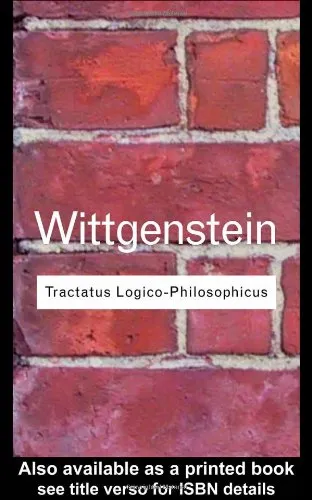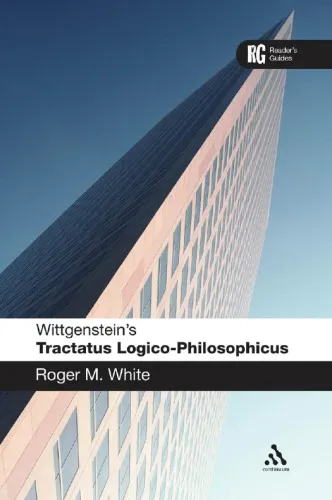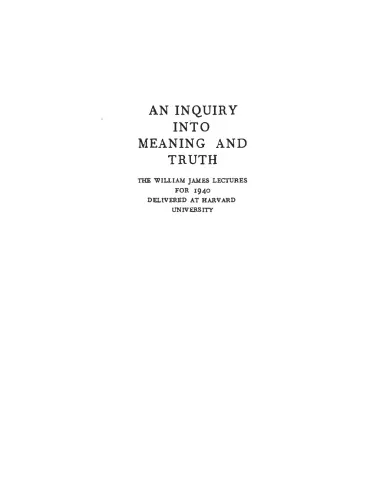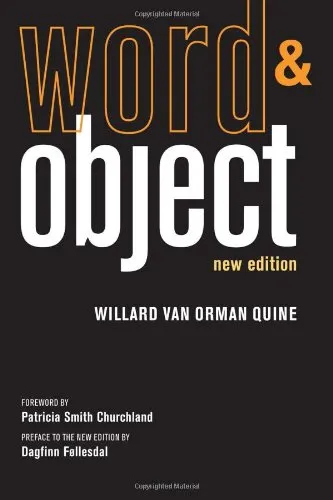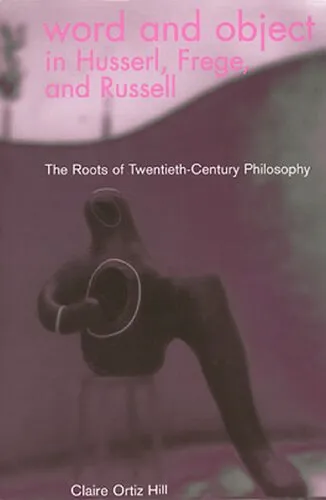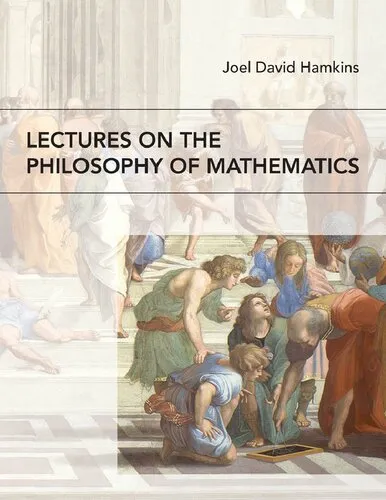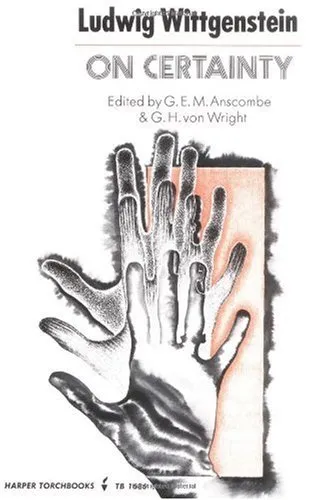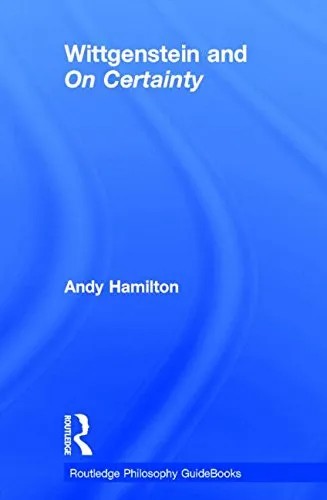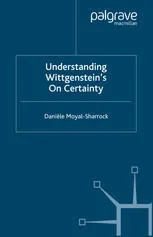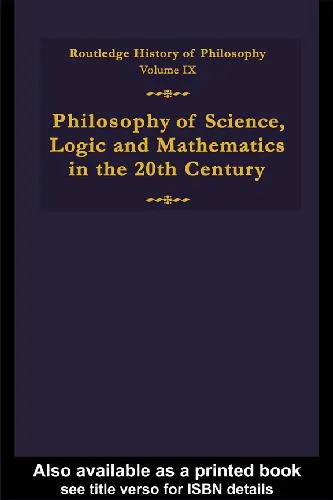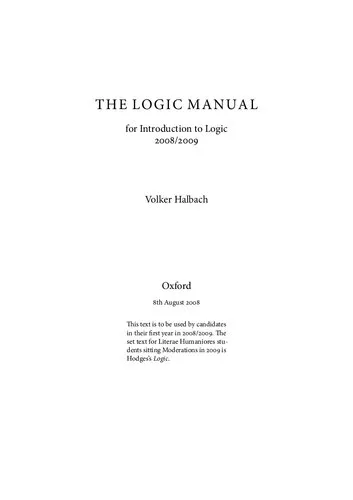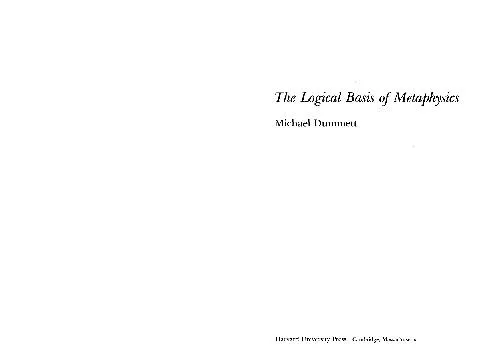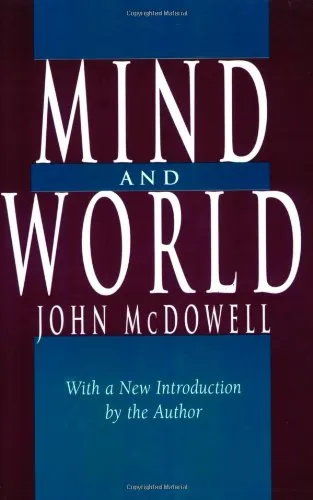Tractatus Logico-Philosophicus
4.5
بر اساس نظر کاربران

شما میتونید سوالاتتون در باره کتاب رو از هوش مصنوعیش بعد از ورود بپرسید
هر دانلود یا پرسش از هوش مصنوعی 2 امتیاز لازم دارد، برای بدست آوردن امتیاز رایگان، به صفحه ی راهنمای امتیازات سر بزنید و یک سری کار ارزشمند انجام بدینکتاب های مرتبط:
معرفی کتاب Tractatus Logico-Philosophicus
کتاب Tractatus Logico-Philosophicus اثر لودویگ ویتگنشتاین یکی از متون مهم در فلسفه قرن بیستم است. این کتاب به بررسی رابطه بین زبان، واقعیت و تفکر میپردازد. ویتگنشتاین در این اثر سعی دارد تا محدودیتهای زبان و توانایی آن در ترسیم واقعیت را تبیین کند.
خلاصه دقیق کتاب
Tractatus Logico-Philosophicus به طور کلی از هفت بخش اصلی تشکیل شده است که هر کدام ایدههای پیچیدهای را شرح میدهند. در ابتدا، ویتگنشتاین به ماهیت واقعیت و ارتباط آن با زبان توجه میکند. او معتقد است که دنیا مجموعهای از حقایق و روابط بین آنهاست و زبان باید توانایی توصیف این حقایق را داشته باشد.
یکی از نکات محوری کتاب این است که زبان تنها باید واقعیتهای قابل تجربه را توصیف کند و آنچه بیرون از مرزهای تجربه است، توسط زبان به درستی قابل بیان نیست. ویتگنشتاین بر این باور است که بیشتر مسائل فلسفی ناشی از سوءاستفاده از زبان است و اگر محدودیتهای زبان فهمیده شود، بسیاری از این مسائل حل میشوند.
نکات کلیدی و آموزنده
از مهمترین نکاتی که از این کتاب میتوان فرا گرفت عبارتند از:
- زبان ابزار اصلی تفکر و تجسم واقعیت است.
- توانایی زبان در توصیف مستقیماً به ساختار منطقی و تجسمپذیری واقعیت وابسته است.
- بسیاری از مسائل فلسفی سنتی صرفاً ناشی از گمراهیهای زبانی هستند.
جملات معروف از کتاب
تعدادی از جملات معروف و تأثیرگذار این کتاب شامل موارد زیر است:
هر چیزی که میتواند بیان شود، میتواند به وضوح بیان شود؛ و چیزی که نمیتواند دربارهاش سخن گفت، باید در سکوت گذرانده شود.
مرزهای زبان من مرزهای دنیای من است.
چرا این کتاب اهمیت دارد؟
Tractatus Logico-Philosophicus از این نظر اهمیت دارد که تلاش دارد تا محتوای فلسفی را به زبانی امروزی و ملموس بازگو کند. این کتاب در میان فیلسوفان و زبانشناسان تأثیرگذار بوده است و موجب شده تا نگرش جدیدی به رابطه بین زبان و واقعیت ایجاد شود. ویتگنشتاین با ارائه دیدگاهی نو به مسائل فلسفی، چالشهای جدیدی را برای اندیشمندان در زمان خود و حتی امروزه به وجود آورده است.
از آنجایی که این کتاب به عنوان یکی از آثار کلیدی در فلسفه تحلیلی شناخته میشود، مطالعه آن برای هر کسی که به مباحث فلسفی، منطق و زبانشناسی علاقهمند است، ضروری است.
Introduction to the Tractatus Logico-Philosophicus
The 'Tractatus Logico-Philosophicus' is a rigorous and enigmatic work of philosophy by Ludwig Wittgenstein, which deals with the logical structure of language and reality. As one of the most influential philosophical texts of the 20th century, it challenges readers to consider the limits of language and thought. This introduction aims to provide an in-depth overview of the book, key insights, memorable quotes, and its importance in the field of philosophy.
Summary of the Book
The 'Tractatus Logico-Philosophicus' presents a philosophical system that explores the relationship between language, reality, and thought. The book is structured as a series of succinct propositions, each numbered to reflect their logical importance and complexity. Wittgenstein's primary argument is that the structure of language mirrors the structure of reality, leading to the conclusion that what can be said at all can be said clearly, and what we cannot talk about must be passed over in silence.
Wittgenstein begins by declaring that the world consists of a totality of facts, not things, and these facts are logically structured. He explores the ways language functions to represent facts, delving into the logical symbolism that underpins meaningful statements. The core idea of logical atomism is presented, proposing that statements about the world can be broken down into atomic propositions that correspond directly with atomic facts.
As the text unfolds, Wittgenstein meticulously investigates the nature of logic, belief, and the limits of human knowledge. The 'Tractatus' concludes with the famous aphorism, "What we cannot speak about we must pass over in silence," highlighting the boundaries of philosophical inquiry and the ineffable nature of certain human experiences.
Key Takeaways
- The structure of language reflects the structure of reality.
- Language can only represent facts; it cannot express what lies beyond factual discourse.
- Logic is inherent in language and forms the limits of what can be understood and expressed.
- Ethical and metaphysical statements, being beyond the realm of verifiable facts, are nonsensical in terms of logical discourse, but they hold value beyond the propositional language.
Famous Quotes from the Book
"The limits of my language mean the limits of my world."
"What we cannot speak about we must pass over in silence."
"A proposition is a picture of reality."
Why This Book Matters
The 'Tractatus Logico-Philosophicus' is fundamentally significant due to its profound influence on both analytical philosophy and the development of logical positivism. Wittgenstein's insights into the nature of language and reality paved the way for future philosophical inquiries and influenced thinkers like Bertrand Russell, who recognized the treatise's groundbreaking exploration of logic and language.
The book's exploration into the limits of language and the nature of meaning set the stage for later philosophical discourse, especially those addressing the philosophy of language and mind. Wittgenstein's pivotal distinction between what can be shown versus what can be said continues to spark rigorous debate and ongoing investigation, making the 'Tractatus' a cornerstone in the study of philosophy.
دانلود رایگان مستقیم
شما میتونید سوالاتتون در باره کتاب رو از هوش مصنوعیش بعد از ورود بپرسید
دسترسی به کتابها از طریق پلتفرمهای قانونی و کتابخانههای عمومی نه تنها از حقوق نویسندگان و ناشران حمایت میکند، بلکه به پایداری فرهنگ کتابخوانی نیز کمک میرساند. پیش از دانلود، لحظهای به بررسی این گزینهها فکر کنید.
این کتاب رو در پلتفرم های دیگه ببینید
WorldCat به شما کمک میکنه تا کتاب ها رو در کتابخانه های سراسر دنیا پیدا کنید
امتیازها، نظرات تخصصی و صحبت ها درباره کتاب را در Goodreads ببینید
کتابهای کمیاب یا دست دوم را در AbeBooks پیدا کنید و بخرید
1382
بازدید4.5
امتیاز0
نظر98%
رضایتنظرات:
4.5
بر اساس 0 نظر کاربران
Questions & Answers
Ask questions about this book or help others by answering
No questions yet. Be the first to ask!
